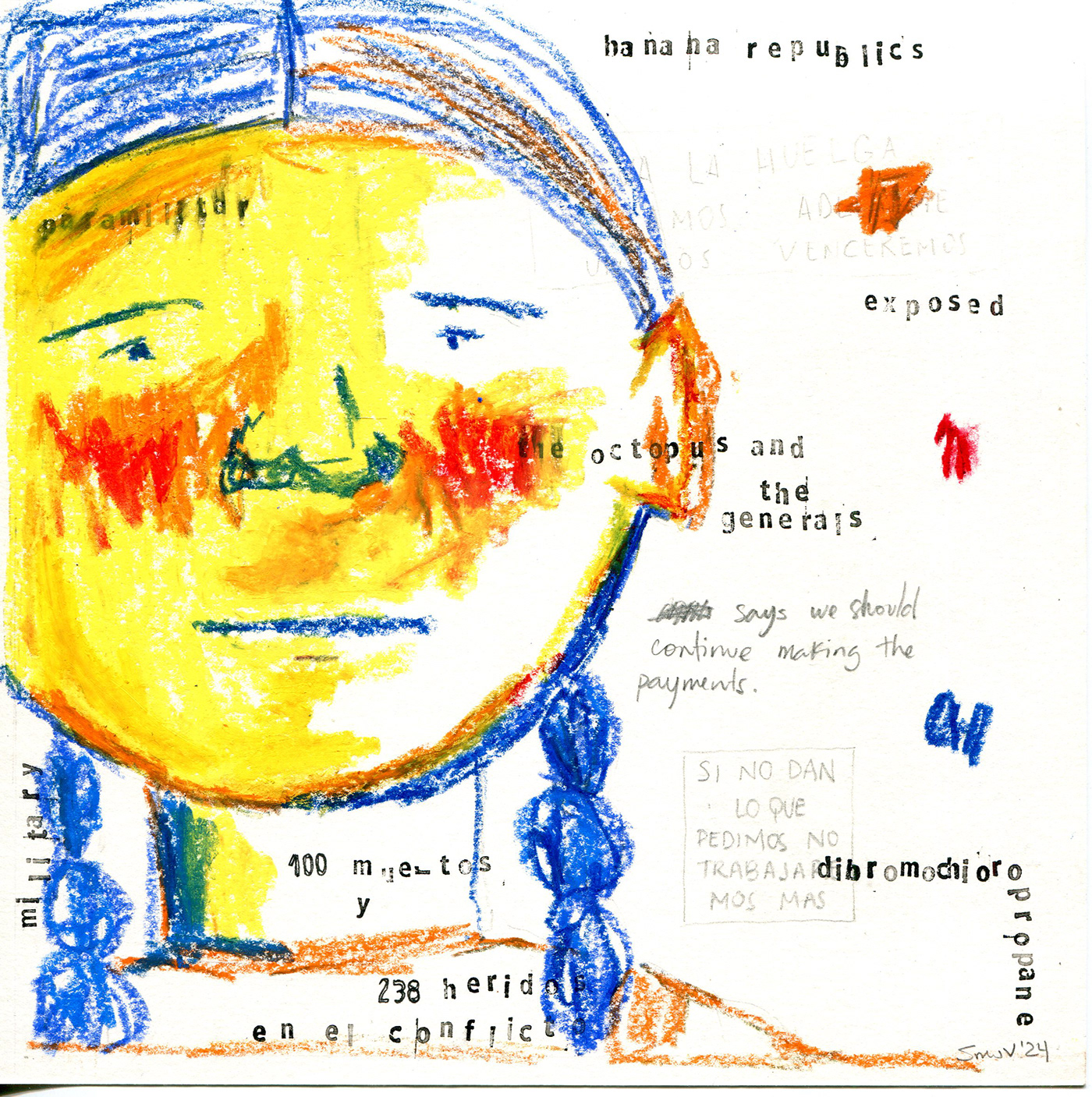









BANANALAND: A Story of Corporate Colonialism
Nearly a decade ago, the term 'banana republic' casually came to me through the radio. Initially, I thought it was a joke from the host, but with time, I realized it wasn't. It is often used to depict underdeveloped nations, especially in Latin America, the place where this term was inspired. Nowadays some countries remain burdened with the label of 'Banana Republic’ because of its constant instability.
I invite you to explore the narrative behind Chiquita Banana—a product easily found in supermarkets around the globe. Through this work, I aim to reflect on the fragility of memory and whether achieving decolonization is possible.
The United Fruit Company, now known as Chiquita, was an American corporation specializing in tropical fruits, predominantly bananas sourced from Latin America and sold across the US and Europe. Founded in 1899, they aimed to become the leader in the banana market, they succeeded, and during the process, they established an empire called 'the octopus' by the local press due to their ambition and encompasses. Soon they became entangled in turbulent events including exploitation, bribery, invasions, massacres, orchestrating the Guatemalan coup, funding paramilitary factions, and employing toxic chemicals as pesticides. These actions served their interests but perpetuated regional instability, poverty, and conflict.
Despite rebranding amid conflicts, and their attempts to clean their image, they still face accusations of exploitation in some of the “banana republics”.
Sadly, bananas are one of many products (cocoa, avocados, etc) burdened with violence and exploitation, and that's why I ask myself, did we leave behind the time of colonialism or we've been dressing it up while, really, still being in the midst of it?


